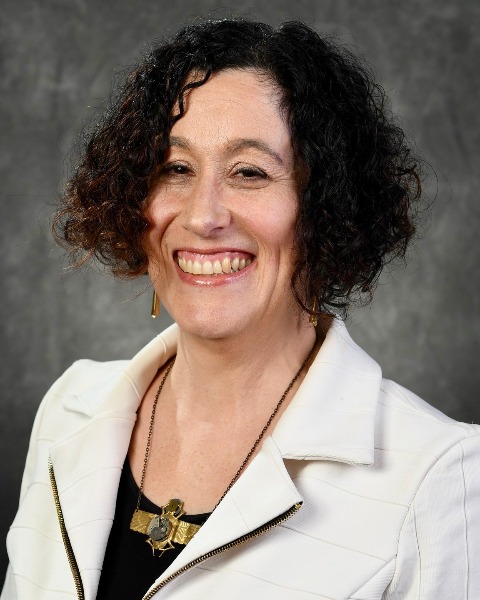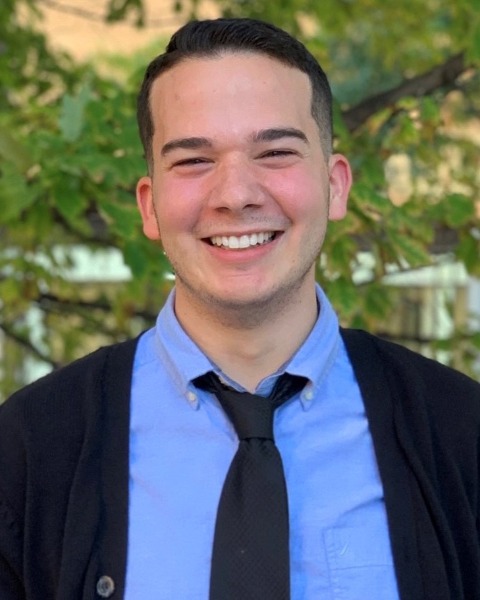Trauma and Stressor Related Disorders and Disasters
Symposium 86 - Scalable and accessible interventions for posttraumatic stress disorder
Level of Familiarity: Basic
Recommended Readings: Monson, C. M., Wagner, A. C., Crenshaw, A. O., Whitfield, K. M., Newnham, C. M., Valela, R., Varma, S., Di Bartolomeo, A. A., Fulham, L., Collins, A., Donkin, V., Mensah, D. H., Landy, M. S. H., Samonas, C., Morland, L., Doss, B. D., & Fitzpatrick, S. (2022). An Uncontrolled Trial of Couple HOPES: A Guided Online Couple Intervention for PTSD and Relationship Enhancement. Journal of Family Psychology, 36(6), 1036–1042. https://doi.org/10.1037/fam0000976,
Ojalehto, H. J., & Abramowitz, J. S. (2023, December 14). Mental Contamination Among Trauma Survivors: A Scoping Review. Traumatology. Advance online publication. https://dx.doi.org/10.1037/trm0000492
Bedard-Gilligan, M., Masters, N. T., Ojalehto, H., Simpson, T. L., Stappenbeck, C., & Kaysen, D. (2020). Refinement and Pilot Testing of a Brief, Early Intervention for PTSD and Alcohol Use Following Sexual Assault. Cognitive and Behavioral Practice, 27(4), 470–486. https://doi.org/10.1016/j.cbpra.2019.10.003
Bedard-Gilligan, M. A., Dworkin, E. R., Kaysen, D., Ojalehto, H. J., Stappenbeck, C. A., & Lindgren, K. P. (2022). A pilot study on the feasibility, acceptability, and preliminary efficacy of a brief text message intervention for co-occurring alcohol misuse and PTSD symptoms in a community sample. Journal of Anxiety Disorders, 91, 102615. https://doi.org/10.1016/j.janxdis.2022.102615
-
MB
Michele Bedard-Giligan, Ph.D. (she/her/hers)
Associate Professor
University of Washington School of Medicine
Seattle, Washington, United States -

Debra Kaysen, ABPP, Ph.D. (she/her/hers)
Professor
Stanford University
Stanford, California, United States -
AC
Alexander Crenshaw, Ph.D. (he/him/his)
Assistant Professor
Kennesaw State University
Kennesaw, Georgia, United States -
MB
Michele Bedard-Giligan, Ph.D. (she/her/hers)
Associate Professor
University of Washington School of Medicine
Seattle, Washington, United States -
KL
Kristen Lindgren, ABPP, Ph.D. (she/her/hers)
University of Washington School of Medicine
Seattle, Washington, United States -

Jesse McCann, M.S. (he/him/his)
Graduate Student
University of Kentucky
Lexington, Kentucky, United States
Chair(s)
Discussant(s)
Presenter(s)
Posttraumatic stress disorder (PTSD) is associated with a high global burden of disease yet is quite responsive to evidence-based psychotherapies with long-term outcome trials showing low rates of relapse. However, access to these treatments is limited by financial, geographic, and stigma-related barriers. Such access issues are inequitably distributed across various sociodemographic lines, with people with a range of marginalized identities being less likely to access mental healthcare than others. Meaningfully meeting people with PTSD’s needs on a global scale requires developing, innovating, and testing PTSD interventions that are accessible to a wide array of communities and individuals. This symposium therefore focuses on the development and testing of scalable PTSD interventions that address prevention and/or treatment. The first speaker will present the results from an RCT testing BRITE– a single-session + four coaching call cognitive intervention for sexual assault survivors with PTSD and alcohol misuse– compared to an assessment only control condition, implemented within the first 10 weeks after sexual assault. Results suggest that BRITE is feasible and acceptable, and that the intervention was efficacious in reducing PTSD symptoms to a greater extent than assessment only, although reductions in alcohol misuse were not significantly different in the intervention condition compared to assessment only. The second speaker will present preliminary results of a multiple baseline single-case experimental study testing written exposure therapy (WET), a five-session, trauma-focused intervention, for sexual victimization survivors in reducing PTSD and mental contamination (feelings of pollution without contact with a contaminant). Results suggest that these outcome variables improved reliably during the WET intervention phase and were maintained at follow-up. The next speaker will present the results from a fully-powered RCT using a factorial design that evaluates two cognitive and social psychology enhancements to a brief, self-directed CBT text message intervention for individuals with co-occurring PTSD symptoms and problematic drinking. These enhancements were added based on participant feedback from an earlier trial, and results regarding their relative efficacy in reducing PTSD and problematic drinking will be presented at the convention. The fourth speaker will present the results from two randomized controlled trials (RCTs) comparing an online self-help intervention for couples wherein one member has PTSD to a waitlist control in two samples– military members/veterans/first responders with PTSD, and people with COVID-related PTSD. Data analysis is underway, and results will be presented at the convention. Engaging communities in PTSD treatments requires innovating CBTs to be broadly scalable, accessible, and responsive to stakeholder input. These presentations are united by such a mission, and collectively illuminate innovative pathways to deliver PTSD interventions to communities at scale. The discussant– a global expert in the development and testing of scalable PTSD interventions– will synthesize these talks in the context of this year’s convention theme.
Learning Objectives:
- Explain the clinical definition of trauma-related mental contamination and its impact on survivors of sexual victimization with PTSD.
- Describe findings from a clinical trial that demonstrate the efficacy of a brief treatment in reducing PTSD and mental contamination.
- Describe results from an RCT testing a brief, accessible intervention to promote acute recovery for PTSD and alcohol misuse
- Articulate findings on the role of maladaptive cognitions in both therapeutic and natural recovery following sexual assault
- Describe the impact of a self-help online couple intervention for PTSD on PTSD in military members and those with COVD-related PTSD
- Describe two enhancements added to a brief CBT text message intervention for PTSD and co-occurring problematic drinking
- Describe data from an RCT that uses a factorial design to evaluate the enhancements' efficacy on improving PTSD symptoms and problematic drinking
Presentations:
-
12:30 PM - 2:00 PM EST(SYM 86) Increasing Access to PTSD Interventions and Expanding Their Benefits to Partners: Two Randomized Controlled Trials of an Online, Self-help Couples Intervention for PTSD
Co-author: Robert Valela, MA – Private Practice
Co-Author: Skye Fitzpatrick, Ph.D. (she/her/hers) – York University
Co-Author: Robert Valela, MA – Private Practice
Co-author: Kristen Whitfield, BA (she/her/hers) – Toronto Metropolitan University
Co-author: Elizabeth A. Earle, B.A. – York University
Co-author: Sophie Goss, MA – York University
Co-author: Julianne Bushe, BA (she/her/hers) – Toronto Metropolitan University
Co-author: Sonya Varma, M.A. (she/her/hers) – York University
Co-author: Alexis Collins, BA (she/her/hers) – Toronto Metropolitan University
Co-author: Don Proctor (he/him/his) – Self-employed
Co-author: Anne C. Wagner, Ph.D. – Remedy + Remedy Institute
Co-author: Christina Samonas, PhD – Ryerson University
Co-author: Kamya Goenka, BA (she/her/hers) – York University
Co-author: Omega Luxor, B.A. – York Univeristy
Co-author: Leslie Morland, PsyD (she/her/hers) – San Diego VA
Co-author: Brian D. Doss, Ph.D. (he/him/his) – University of Miami
Co-author: Candice Monson, Ph.D. (she/her/hers) – Toronto Metropolitan University
-
12:30 PM - 2:00 PM EST(SYM 86) Testing a Cognitive Intervention as an Acute Intervention Following Sexual Assault: Results from Project BRITE
Speaker: Michele Bedard-Giligan, Ph.D. (she/her/hers) – University of Washington School of Medicine
Co-author: Michele Bedard-Giligan, Ph.D. (she/her/hers) – University of Washington School of Medicine
Co-author: Cynthia Stappenbeck, Ph.D. – Georgia State University
Co-author: Heidi Ohalehto, MS (she/her/hers) – University North Carolina Chapel Hill
Co-author: Emily R. Dworkin, Ph.D. (she/her/hers) – University of Washington School of Medicine
Co-author: Jennifer Cadigan, PhD (she/her/hers) – University of Washington
Co-author: Tracy Simpson, PhD (she/her/hers) – VA Puget Sound Health Care System
Co-author: Debra Kaysen, ABPP, Ph.D. (she/her/hers) – Stanford University
-
12:30 PM - 2:00 PM EST(SYM 86) Project BETTER: Results from a Randomized Clinical Trial Evaluating Enhancements to a Brief CBT Text Message Intervention for Co-occurring PTSD Symptoms and Alcohol Misuse
Speaker: Kristen Lindgren, ABPP, Ph.D. (she/her/hers) – University of Washington School of Medicine
Co-author: Emily R. Dworkin, Ph.D. (she/her/hers) – University of Washington School of Medicine
Co-author: Ty L. Tristao, B.A. – The University of Washington School of Medicine
Co-author: Brian Calhoun, Ph.D. – University of Washington, Psychiatry and Behavioral Sciences
Co-author: Isaac Rhew, PhD – University of Washington
Co-author: Debra Kaysen, ABPP, Ph.D. (she/her/hers) – Stanford University
Co-author: Michele Bedard-Giligan, Ph.D. (she/her/hers) – University of Washington School of Medicine
-
12:30 PM - 2:00 PM EST(SYM 86) The Efficacy of Written Exposure Therapy in Reducing PTSD Symptoms and Mental Contamination in Survivors of Sexual Victimization: Preliminary Results from a Single-case Experimental Study
Speaker: Jesse P. McCann, M.S. (he/him/his) – University of Kentucky
Co-author: Jordyn Tipsword, M.S. – University of Kentucky
Co-author: Mary Levi, M.S. (she/her/hers) – University of Kentucky
Co-author: Christal Badour, Ph.D. – University of Kentucky

.png)
